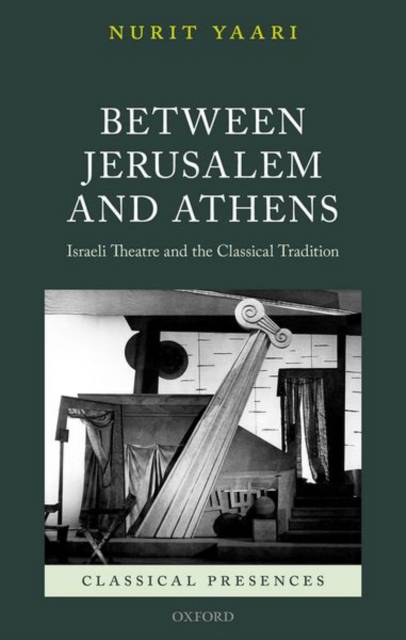
- Afhalen na 1 uur in een winkel met voorraad
- Gratis thuislevering in België vanaf € 30
- Ruim aanbod met 7 miljoen producten
- Afhalen na 1 uur in een winkel met voorraad
- Gratis thuislevering in België vanaf € 30
- Ruim aanbod met 7 miljoen producten
Zoeken
€ 273,95
+ 547 punten
Omschrijving
How does a theatrical tradition emerge in the fields of dramatic writing and artistic performance? How can a culture in which theatre played no part in the past create a theatrical tradition in the modern world? How do political and social conditions affect the encounter between cultures, and what role do they play in creating a theatre with a distinctive identity? This volume attempts to answer these and other questions in the first in-depth study of the reception of ancient Greek drama in Israeli theatre over the last 70 years. Exploring how engagement with classical culture has shaped the evolution of Israel's theatrical identity, it draws on both dramatic and aesthetic issues - from mise en scene to 'post dramatic' performance - and offers ground-breaking analysis of a wide range of translations and adaptations of Greek drama, as well as new writing inspired by Greek antiquity. The detailed discussion of how the performances of these works were created and staged at key points in the development of Israeli culture not only sheds new light on the reception of ancient Greek drama in an important theatrical and cultural context, but also offers a new and illuminating perspective on artistic responses to the fateful political, social, and cultural events in Israel's recent history.
Specificaties
Betrokkenen
- Auteur(s):
- Uitgeverij:
Inhoud
- Aantal bladzijden:
- 480
- Taal:
- Engels
- Reeks:
Eigenschappen
- Productcode (EAN):
- 9780198746676
- Verschijningsdatum:
- 18/12/2018
- Uitvoering:
- Hardcover
- Formaat:
- Genaaid
- Afmetingen:
- 142 mm x 218 mm
- Gewicht:
- 725 g

Alleen bij Standaard Boekhandel
+ 547 punten op je klantenkaart van Standaard Boekhandel
Beoordelingen
We publiceren alleen reviews die voldoen aan de voorwaarden voor reviews. Bekijk onze voorwaarden voor reviews.











